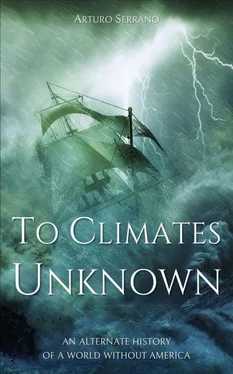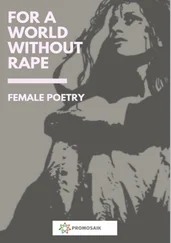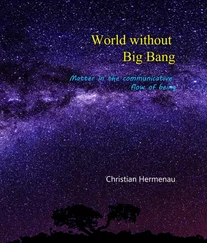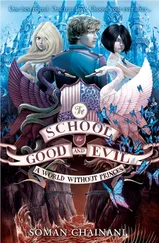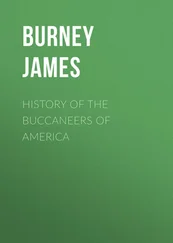Neema looked at the face on the paper and then at the woman. “Where’s Antónia?”
“Antónia died three years ago.” She saw tears form in Neema’s eyes and hugged her for a long time.
“If I may ask,” said Paulo, “how did it happen?”
The woman let go of Neema and her eyes wandered into the past. “She just got sick. Of what, I never knew. She had headaches that never stopped; she couldn’t sleep. It all lasted less than a year.”
“We’re very sorry,” said Rukkamma. “We didn’t know; we shouldn’t have bothered you.”
“It’s not your fault. Please don’t mind that I’m crying. This is a joyful day for me. Neema, would you like to see her bedroom?”
Neema nodded, and the lady placed her hands on the armrests of her chair to help herself stand up. The movement was very slow and seemed to consume all her energy. With tired steps she took Neema inside.
Rukkamma whispered to Paulo, “She’s got to be half as old as she looks if she had a daughter of Neema’s age.”
“Grief can devastate a mother.”
“You may be right. Still, I’m no medic, but this looks like something more.”
The lady opened the door to Antónia’s bedroom and Neema entered with hesitation. “We played here so many times.”
“I still clean it every day. All her dolls are here.”
Neema felt a surge of excitement that she promptly put under control. “Her favorite was the Queen of Russia. Antónia never let me play with it.”
“It’s the one on the top shelf.”
Neema stood before the collection and allowed herself a sad smile. Of all the elegant dresses worn by Antónia’s dolls, the Queen of Russia boasted the most elaborate, the most dreamlike. She didn’t even know where Russia was, but she was aware that, for a girl raised by Hiriyanna Rukkamma, such a gap had to mean it was some unimportant corner of the world. That only enhanced the mystery of that doll. She’d had the chance to hold in her hands the Queen of France and the Empress of Mexico, but none could rival the favorite’s appeal.
“Your father said you were interested in a rock,” said the woman. “I think I know where it is.” She went to the bed and searched under the mattress. “Here you are.” She took out a solid mass of lustrous black crystal. “She was so happy when she found it. She used to tell me she wanted to save money to hire a gem cutter.”
“Is it a genuine precious stone?”
“What do I know? Once or twice in my lifetime I’ve seen rocks like this lying around the town. I’ve always thought people wouldn’t leave them there if they were worth something.”
“But it’s so pretty.”
“That’s true. Antónia didn’t tire of admiring it.”
“I saw a drawing of a rock like this in a book my father gave me. It’s called Pechblende.”
The woman regarded her with newfound respect. “You have studied about this. Would you like to have the rock?”
Neema wanted to say yes, but was also struggling with an avalanche of feelings she’d never experienced and didn’t know how to deal with. “Is it right for me to have it?”
“I say it is. If this helps you keep the memory of my daughter, then you should have it, as well as her picture.”
Neema’s parents appeared at the doorframe, and she took her leave.
During the walk back home, she didn’t ask any questions. She was enthralled by how a dark material like Pechblende was able to reflect the world around it like a quiet lake under moonlight.
Afternoon, November 2 (Gregorian), 1938
Likasi
“Neema, may I borrow some of your silver paper?”
Neema had mostly stayed in her bedroom since hearing of her former classmate’s death. She had even ceased going to Mass. Her time was spent in reading and, for the first time, writing. One day she’d examine her thoughts in Kikongo and the next day she’d try in Danish. It was very hard because she only knew a few words of each, but her mother had filled her bedroom with a copious choice of dictionaries.
“Neema, are you awake? Please open the door.”
She had never had an interest in poetry. What she had started writing had no name yet, but it felt necessary to her. Everything was poured through her quill: the wars of Vedic gods, the laws of motion, the rivers of Brazil, the moons of Saturn, declensions in Ottoman, the alloys of tin, Canutic dynasties, the burning of Tenochtitlán, the strange animals of Encoberta, the months of the Hebrew calendar, every single lake in Novadania…
“Neema, today we’re teaching the refraction of light. I need some silver paper. Can you open the door?”
For a child raised among books it was easy to develop the sense that the slightest anguish could be alleviated by looking up what had been written on the topic that felt troubling. But she had no books about disease, or death, or melancholy. She was left to decide for herself what she thought about it all.
“Neema, I’d like you to go with me today. The other children miss you.”
When the door opened, Rukkamma noted that her daughter didn’t have an air of childhood anymore. A strand had been woven into her soul, and another had broken.
“How are you? I was starting to worry; we’ve seen little of you lately.”
“I needed to think. It just took me more time than I supposed it would. How many sheets do you need?”
“Just a few. I was hoping you could demonstrate your hand shadows for the class; inverted projections are the main point of this lesson.”
Neema went to her desk and opened the drawer where she kept the silver paper. Her father had brought her a new bundle of it last week, but she hadn’t felt in the mood for playing with hand shadows. “It’s damaged,” she said as soon as she saw it.
“Damaged how?”
Neema showed her mother one of the new sheets. “It has this huge blotch of white in the center. As if it had been exposed to a lamp for hours.”
“Did you?”
Neema pointed at the package. “This is the first time I’ve opened it. I haven’t used it.” She tried another sheet. “All of them look like this.”
“And this paper has stayed in the dark this whole time?”
“Yes, I kept it in here.”
Rukkamma entered the room and had a look inside the drawer. “What else is in here? Neema, if you’ve been leaving candles in—” She saw, under the pile of silver paper, the black rock. She grabbed it and held it in her hand, her head full of questions.
Puzzlement enveloped Neema’s voice. “Did the rock do this?”
“That’s one of the right questions to ask. You’re starting to reason like a natural philosopher.” Rukkamma sat on the bed and began threading one argument after another. “We know silver paper is designed to react to light. Now, this rock has a shiny surface, but I wouldn’t call it bright.” She looked at it closely, with the eerie suspicion that there was more to Pechblende than German geologists knew.
“But still,” said Neema, “it affected the papers. It must shine somehow.”
“You know what’s coming, don’t you?”
She knew it well. “Testing.”
Rukkamma started pacing around the room. “We need two different spaces with a separation in each. We need to place the rock in one closed box that will have silver paper and some normal paper that doesn’t react to light. And we need to have both types of paper in another closed box, without the rock.”
“But you’ve had paper in storage all your life. You already know it doesn’t spontaneously grow a blotch of white.”
“Yes, but with the rock here—you know what? You just made me realize that the presence of the rock might influence the other box. If it produces some new type of light, one that leaves our eyes untouched, that light may be able to bypass solid matter. No, we need a different test. Let’s arrange ten closed boxes in a line, each containing one sheet of silver paper, and place the rock near the first box. I predict that the paper in the other boxes will also burn white, but with less intensity in proportion to their distance from the rock.”
Читать дальше
